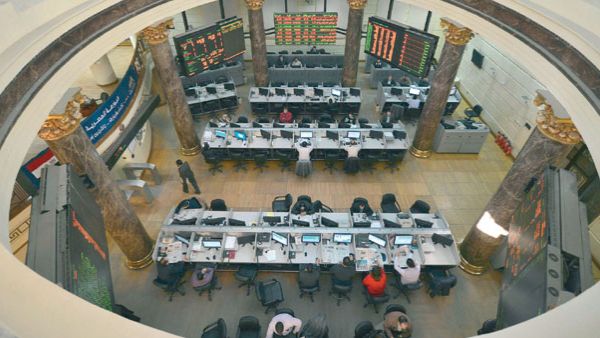Egypt's bourse dropped to a five-week low on Tuesday, making its biggest one-day loss in two months on increasing fears of political instability, while Gulf markets were mixed.
Cairo's main benchmark lost 1.6 percent, its lowest since April 30.
Investors are selling ahead of planned protests on June 30, which marks the one-year anniversary of President Mohammed Morsi taking office. Some are worried the protests could get violent.
"The closer we get to June 30, the more people are scared due to the large dissatisfaction with the government," said Osama Mourad, an independent analyst and former chief executive of Arab Finance Brokerage.
Selling pressure on Cairo's bourse kicked off on Sunday after Egypt's top court ruled that parliament's Muslim Brotherhood-led upper house was illegal but could stay on until elections.
All but one of the 30 stocks in the index fell. Commercial International Bank lost 3.1 percent.
Heavyweight Orascom Construction Industries bucked the trend and rose 1.5 percent after its Dutch subsidiary OCI NV submitted an updated tender offer for shares in the Cairo firm.
OCI NV said it will offer all holders of Cairo-listed OCI shares an exchange offer to convert them into OCI NV stock as well as a cash alternative of 255 Egyptian pounds ($36.51) per share.
OCI had previously offered 280 pounds per share when the exchange was announced in January. This offer was held up by a tax dispute, which was settled after OCI agreed to pay 7.1 billion Egyptian pounds ($1 billion) in April.
Elsewhere, Dubai's measure failed to break through a technical resistance at 2,500 points, following a sharp rise in recent weeks. The benchmark declined 0.2 percent to 2,416 points, down for a second session since Sunday's 54-month high.
Analysts say some bets in recent sessions were placed on a possible upgrade for the UAE to emerging market status by index compiler MSCI. It will announce its decision on June 12.
"If we have a positive MSCI decision, we might see another spike and then a correction since a part of it is already priced in," said Mohammed Yasin, managing director of Abu Dhabi Financial Services. "If we don't get included in the emerging market index, we'll see a dip in volumes, but they will still be much higher than last year's average."
A country must have at least three stocks meeting MSCI's minimum requirements for it to attain emerging market status. HSBC said six stocks in UAE are eligible for an upgrade including Emaar Properties and Dubai Financial Market .
Some of these stocks have seen increased investor interest in recent sessions. DFM surged 6 percent, up 44 percent in the last week. Emaar retreats 1.5 percent.
Abu Dhabi's measure slipped 0.5 percent, halting a six-session rally and easing off Monday's 55-month closing high.
In Qatar, the measure gained 0.3 percent to its highest close since September 2008.
>Qatar National Bank and Qatar Telecom climbed 1.2 and 1.1 percent respectively.
Qatar is also a candidate for an MSCI upgrade, but investors are bearish on the likelihood of a favourable decision.
In Saudi Arabia, the benchmark rose 0.3 percent to it's highest since April 2012. Banking shares extend the rally with the sector's index rising 1.4 percent.
Elsewhere, Kuwait's bourse dropped 1.4 percent, down for a fourth session in last five as investors continued a selling spree triggered last week.








